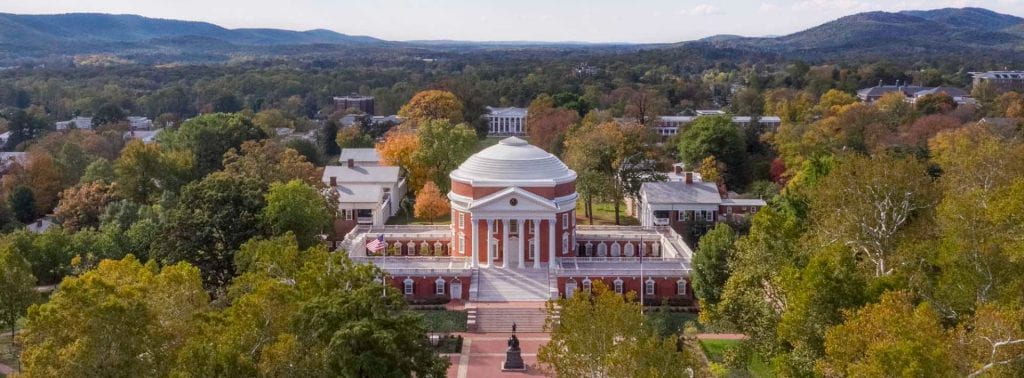
University of Virginia Chemistry offers three graduate options. Each program provides different levels and types of support to help students achieve their goals:
- The Ph.D. program is designed for students who want and are prepared to obtaining this research-focused degree.
- The UVA Bridge to Doctorate Program is intended for students who desire a Ph.D. degree, have the talent and motivation to complete an advanced degree, but whose preparation in their intended field of study might be insufficient to begin a Ph.D. program.
- The non-thesis Master’s program is designed for students who want an advanced degree but are not necessarily ready for or interested in the Ph.D. program.
The graduate programs provide unique support and opportunities including:
- First year peer mentoring program: each graduate student is paired up with a senior graduate student who helps them navigate the first year of graduate school.
- Professional development opportunities, many through UVA’s PhD Plus program, in the form of courses, workshops and internships.
- Direct connections with potential employers via seminar series and career fairs hosted in the Department of Chemistry.
UVA Chemistry has a wide range of research interests that span astrochemistry, bioanalytical, biophysical, catalysis and energy, chemical biology, chemical education, imaging and sensing, organic, nanoscience, surface chemistry and spectroscopy, and theoretical chemistry.
The application deadline is December 1st. There is an application fee waiver program.
Additional details are available on the website, brochure, and MS degree flyer.

 This program, sponsored by the U.S. Department of Agriculture Animal and Plant Health Inspection Service (USDA APHIS), is designed to build technical skills and knowledge needed to work in a high containment diagnostic, animal, or insectary laboratory.
This program, sponsored by the U.S. Department of Agriculture Animal and Plant Health Inspection Service (USDA APHIS), is designed to build technical skills and knowledge needed to work in a high containment diagnostic, animal, or insectary laboratory.